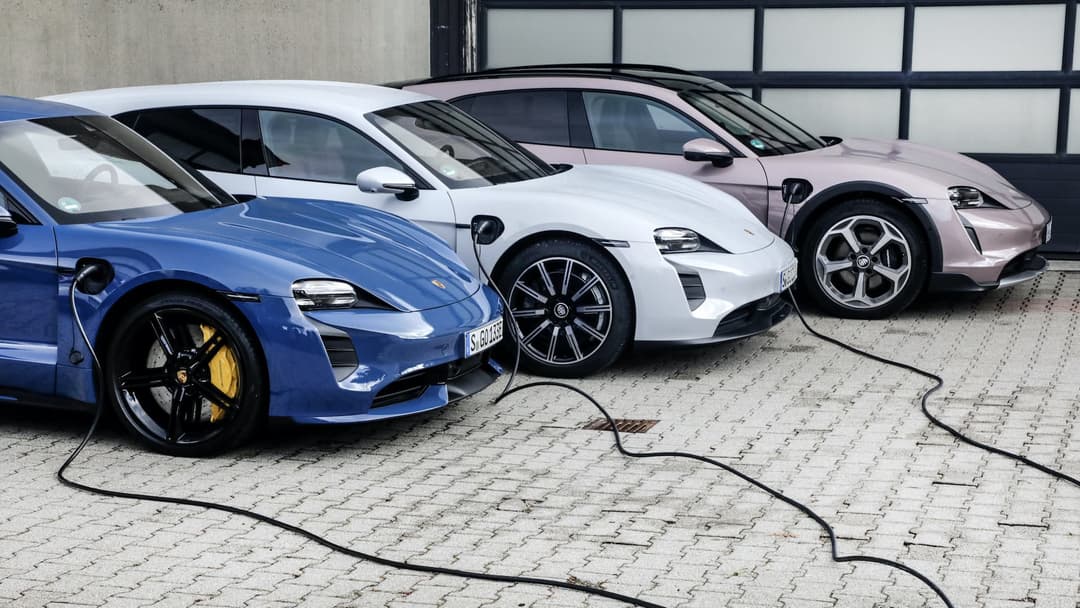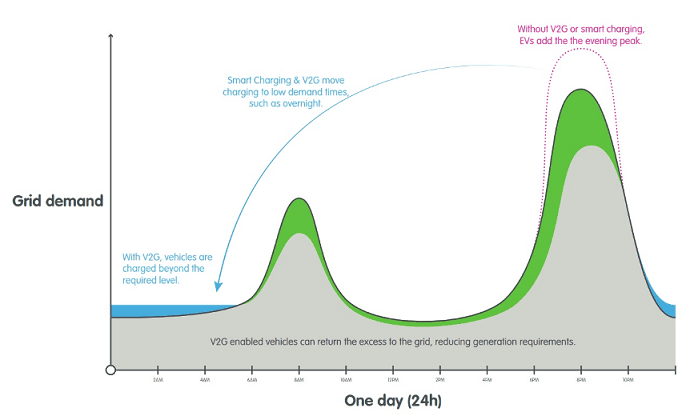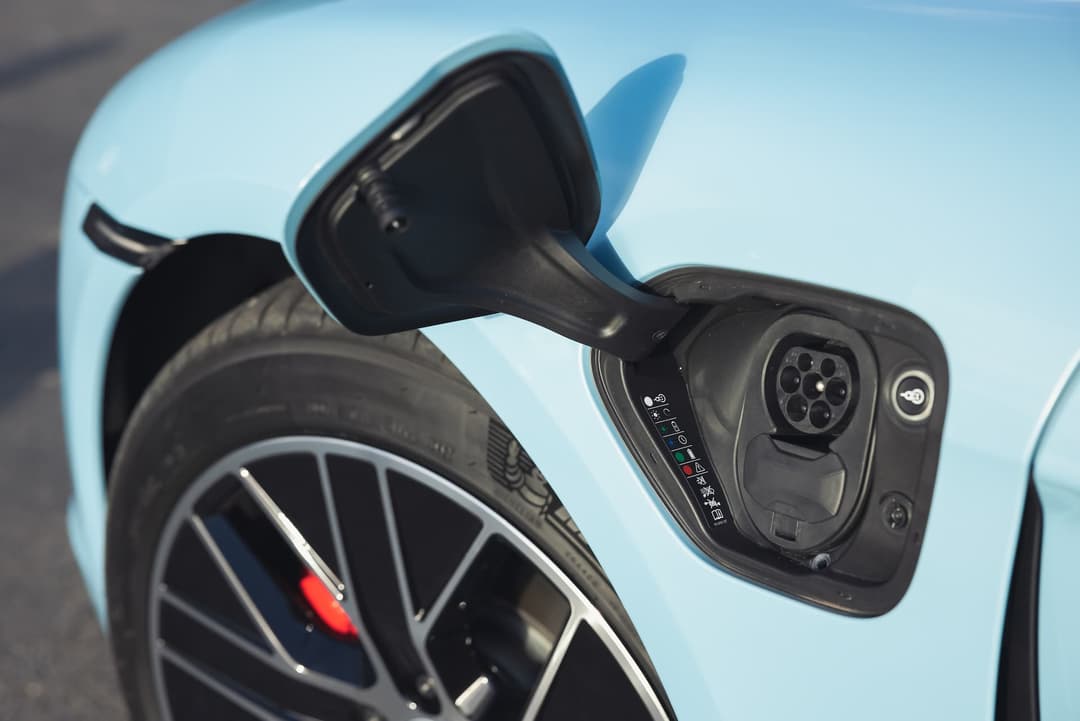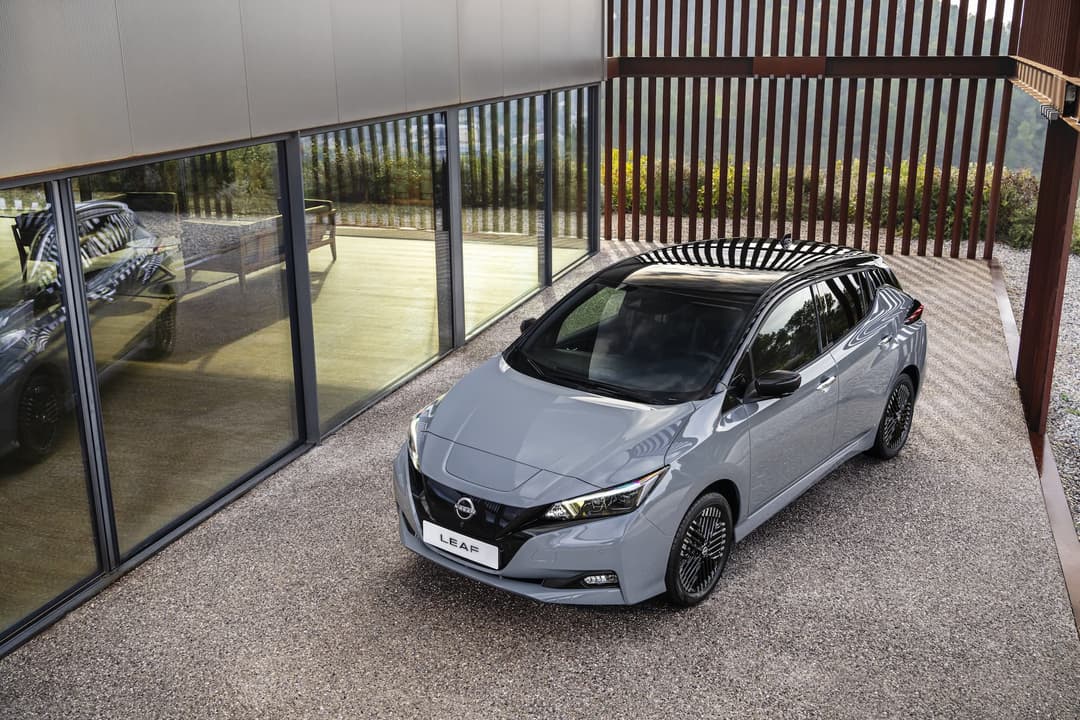
The Porsche Taycan has been hiding a little secret.
The Stuttgart performance arm of the Volkswagen Group has enabled bidirectional charging capabilities on five production Taycan coupe and Taycan Cross Turismo wagon electric vehicles to test out vehicle-to-grid (V2G) in Germany.
The pilot test by Porsche, grid operator TransnetBW and consulting firm Intelligent Energy System Services (IE2S) demonstrates that a pool of electric Taycan’s can help stabilise the electricity grid by acting as a power plant to balance power fluctuations in the grid when connected via the Porsche Home Energy Manager.

V2G allows EVs to contribute their battery energy to the electricity grid when not in use, especially during peak demand periods. When the grid is in lowest demand overnight (cheapest energy tariff) or when there’s solar energy available (free electricity), it can then recharge the EV for the next day.
Since the Taycan’s inception in 2019, it wasn’t widely known that it was capable of bidirectional charging, although Porsche did confirm to EV Central that a software update could enable it in the future.
According to the carmaker, the expansion of renewable energy sources will demand more balancing power in the future to maintain a stable grid at a constant 50 hertz power frequency, particularly when the wind and sun aren’t producing consistent amounts of energy.

Historically, conventional coal-fired power plants could offset the fluctuations. Going forward these services will be conducted via aggregating distributed batteries, also known as a Virtual Power Plant (VPP).
A successful trial was conducted in South Australia in 2019 where 1100 households fitted with Tesla Powerwall batteries generated income by providing stabilisation services to the grid.
Through V2G technology, EVs could use their batteries to provide the same services. The advantage of using EVs is that there is no need to purchase an additional battery. Instead, you would use the excess capacity available in your car.

Chief financial officer of TransnetBW Dr Rainer Pflaum said the cloud-based pooling system by IE2S that coordinates and controls the charging process was integral to the test.
“The project team has managed to implement the complex communication infrastructure between our control system and several electric vehicles,” Dr Pflaum said.
“At the same time, the strict specifications for storing and supplying balancing power have been met.
“This will enable us to integrate electromobility into the intelligent power grid of the future,” he said.

Porsche isn’t the first automaker to test V2G.
Volkswagen has already confirmed that its EVs based on the dedicated Modular Electric Toolkit (MEB) platform with a 77kWh battery, including the ID.3 hatch, ID.4 SUV and ID.Buzz van, will be capable of bidirectional charging later this year as standard or via an over-the-air software update for existing owners.
Meanwhile, Nissan has long been trialling V2G on its venerable Leaf hatchback in Japan, Europe and recently Australia thanks to the Australian Renewable Energy Agency (ARENA), while the Ford F-150 Lightning ute and Mitsubishi Outlander PHEV SUV are also bidirectional charging capable.
Whereas bidirectional charging can contribute to the grid or power homes, a growing number of EVs today feature vehicle-to-load (V2L) capabilities like the Kia EV6, Hyundai Ioniq 5 and BYD Atto 3 which can power almost any electrical device using a standard domestic plug, including coffee machines, fridges, laptops and more.
Figures by Danny Thai
About the author
Stay up to date with the latest EV news
- Get the latest news and update
- New EV model releases
- Get money savings-deal

